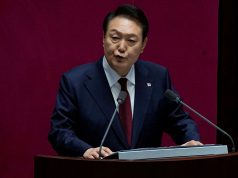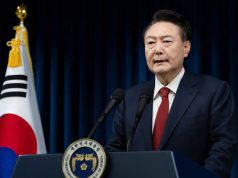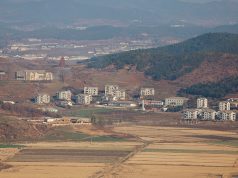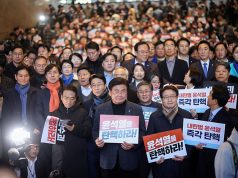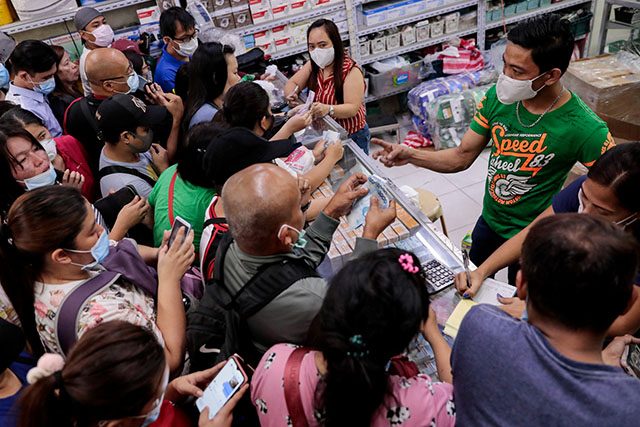
The suggestion for President Rodrigo Duterte to declare a nationwide martial law to supposedly impose order among Filipinos amid the threat of 2019 novel coronavirus was met with criticisms.
Twitter user @canete_darwin shared his thoughts that the chief executive should place the country under military rule so that the citizens’ movements are restricted and heavily controlled.
“To stop the (coronavirus), I think the president should declare MARTIAL LAW. He needs extraordinary powers to search, inspect and restrict the movement of citizens. We need quarantine checkpoints and military or police deployment in all coastlines,” he wrote.

Under the 1987 Philippine Constitution, the president can only declare martial law or suspend the privilege of the writ of habeas corpus for sixty days “to prevent or suppress lawless violence, invasion or rebellion” as the armed forces’ commander-in-chief.
It also requires the president to submit a report to the Congress 48 hours after its proclamation, which may then be revoked, extended or approved through a joint voting session.
The Supreme Court may also review the sufficiency of the factual basis of the proclamation and promulgate its decision within 30 days from its filing.
Following the constitution’s definition, the viral disease nCoV is not a form of lawless violence or an invasion brought about by terrorists or insurgency, among others.
Dubbed as the “cousin of SARS” or the severe acute respiratory syndrome, nCoV is a new strain of coronavirus that attacks the respiratory system with a high human-to-human transmission rate.
It is a viral disease that originated in Wuhan, China and has since infected thousands of people globally, including travelers to the Philippines.
A health crisis needs a health-related response
When the Twitter user suggested that the government should impose martial law to supposedly “restrict the movements of citizens,” create “quarantine checkpoints” and deploy state forces in coastlines, some Filipinos were not too happy.
A user pointed out that “at least 80 soldiers” in that context should be medically qualified to participate in such a demanding proposal.
“Unless the armed forces is made up at least 80 percent soldiers holding a medical license or are registered nurses, medical technologists or medical professionals with relevant competencies, then tanga lang talaga ‘yang Martial Law proposal to protect the country from coronavirus,” @theprinceling said.
Another Twitter user pointed out that the government “should be funding medical services and hospitals to combat nCoV” instead of putting its resources to impose a military rule.
Instead of funding medical services and hospitals to combat nCoV. You suggest to declare Martial Law? What kind of people are you to think of such an idea? pic.twitter.com/5807EV7sGa
— ThatKyle (@darealThatKyle) January 31, 2020
Twitter user @YDarz argued that the country should focus on combating nCoV as a medical issue considering it concerns the health in the first place.
WE NEED A QUICK AND SOUND SOLUTION TO COMBAT CORONAVIRUS.
– FREE OR AT LEAST AVAILABLE SUPPLIES OF SURGICAL MASKS FOR THE PEOPLE
– MORE DETAILS ABOUT THE CONFIRMED VIRUS CASE
– PUBLIC OFFICIALS WITH A SENSE OF URGENCY
AND MANY MORE… NOT MARTIAL LAW. YOU DUMB FUCKING DDS. KYS— Tabtab (@YDarz) January 31, 2020
Filipinos have been calling for the government to act with a “sense of urgency” following nCoV’s threat in a densely populated country lacking advance medical technology.
Duterte on Sunday has temporarily banned flights from mainland China, Hong Kong and Macau as lawmakers—including Vice President Leni Robredo—urge him to prioritize the welfare of his citizens before considering diplomatic relations amid a global health emergency.





